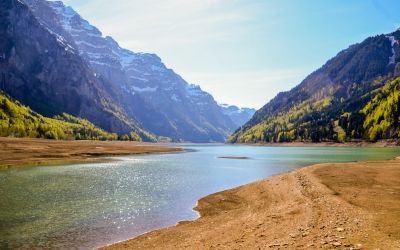In recent years, the dire state of our water resources has become increasingly apparent. Our carelessness is destroying ecosystem and still most of us are ignoring the cry of mother nature!
Ponds and lakes across India, once teeming with life, are now drying up at an alarming rate. This is not merely a natural phenomenon; it is a direct result of human carelessness and mismanagement. As we continue to exploit and pollute our water bodies, we are not only depleting a vital resource but also causing irreversible damage to our ecosystem.
The Current State of Water Resources in India
India has long been a country of diverse and abundant water bodies. However, the rapid urbanisation, industrialisation, and agricultural expansion have taken a heavy toll on these resources. According to a report by the Central Pollution Control Board (CPCB), India’s several water bodies are polluted to various degrees.
The National Green Tribunal (NGT) has also highlighted the drying up of ponds in states like Maharashtra, Tamil Nadu, and Karnataka, attributing it to both climate change and human activities.
Recent Examples of Drying Ponds
- Maharashtra: The Vidarbha region of Maharashtra has seen a significant decline in its water levels. Many ponds in this area, which once served as crucial water sources for agriculture and drinking, are now completely dry. The main reasons include excessive groundwater extraction and the diversion of water for industrial use.
- Tamil Nadu: In Tamil Nadu, several ponds in the districts of Coimbatore and Salem have dried up. The state’s dependence on monsoon rains, coupled with poor water management practices, has led to severe water shortages. The overuse of borewells has further exacerbated the situation.
- Karnataka: The state of Karnataka has witnessed a drastic reduction in water levels in its ponds, especially in the Bengaluru rural and urban districts. Encroachments, waste dumping, and unplanned urban development are the primary culprits behind the disappearance of these water bodies.

How Our Carelessness is Contributing to the Problem
- Pollution: Industrial waste, agricultural runoff, and domestic sewage are being dumped into our water bodies without proper treatment. This pollution not only makes the water unsafe for consumption but also kills aquatic life, disrupting the entire ecosystem.
- Over-extraction: Groundwater extraction for agricultural, industrial, and domestic use has reached unsustainable levels. In many areas, the groundwater table has dropped significantly, leading to the drying up of ponds and lakes.
- Encroachment and Urbanization: Rapid urbanization has led to the encroachment of water bodies. Natural ponds are being filled up to create land for construction, reducing the number of water sources available.
- Climate Change: While not entirely within our control, human activities that contribute to climate change, such as deforestation and carbon emissions, have affected rainfall patterns, further stressing our water resources.
Read water news where you can see how our carelessness has contributed to the problem!
The Ecological Impact
The drying up of ponds and lakes has severe ecological consequences. These water bodies support a variety of life forms, including fish, birds, and other wildlife. Their disappearance disrupts the food chain and leads to the loss of biodiversity. Moreover, ponds play a critical role in recharging groundwater and maintaining the hydrological balance. Without them, we face an increased risk of floods and droughts.
What Can Be Done?
- Improved Water Management: Implementing efficient water management practices, such as rainwater harvesting and the use of drip irrigation in agriculture, can significantly reduce water wastage.
- Pollution Control: Strict enforcement of laws against the dumping of industrial and domestic waste into water bodies is crucial. Setting up proper sewage treatment plants can help in this regard.
- Protection and Restoration: Identifying and protecting existing water bodies from encroachment is essential. Additionally, efforts should be made to restore dried-up ponds and lakes through community participation and government initiatives.
- Awareness and Education: Educating the public about the importance of conserving water and protecting our natural resources can drive behavioral change. Schools, NGOs, and media can play a pivotal role in spreading this message.
Do you know that non-invasive tank cleaning also plays a remarkable role in saving water? When the water tanks are regularly cleaned using this hygienic technique, upto 30%* of tank’s capacity is saved during the cleaning process.
Check out how non-invasive tank cleaning works!
How Our Carelessness is Destroying Ecosystem- Conclusion
Our carelessness and lack of foresight are leading to the rapid depletion of our water resources and the destruction of our ecosystem. The drying up of ponds across India is a stark reminder of the consequences of our actions. It is high time we take collective responsibility and implement sustainable practices to preserve our water bodies for future generations. By doing so, we not only ensure our survival but also protect the rich biodiversity that our planet sustains.